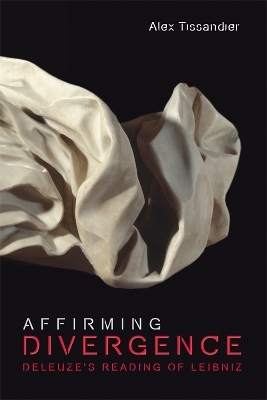
Affirming Divergence
Deleuze's Reading of Leibniz
Seiten
2018
Edinburgh University Press (Verlag)
978-1-4744-1774-7 (ISBN)
Edinburgh University Press (Verlag)
978-1-4744-1774-7 (ISBN)
An account of Leibniz's influence on Deleuze's philosophy
Alex Tissandier argues that an understanding of Deleuze's relationship to Leibniz is essential for a full understanding of his philosophy. Throughout Deleuze's work we find two opposing characterisations of Leibniz. On the one hand Deleuze presents Leibniz as a conservative theologian committed to justifying the order and harmony of a God-governed world. On the other, Leibniz appears as a revolutionary thinker credited with 'the most insane concept creation we have ever witnessed in philosophy'. Tissandier traces Leibniz's ambiguous status for Deleuze in order to provide a framework for explaining two key ideas in Deleuze's own philosophy: a concept of difference that is not reducible to a relation of contradiction and an account of the genesis of the world that does not presuppose the structure of representation.
Alex Tissandier argues that an understanding of Deleuze's relationship to Leibniz is essential for a full understanding of his philosophy. Throughout Deleuze's work we find two opposing characterisations of Leibniz. On the one hand Deleuze presents Leibniz as a conservative theologian committed to justifying the order and harmony of a God-governed world. On the other, Leibniz appears as a revolutionary thinker credited with 'the most insane concept creation we have ever witnessed in philosophy'. Tissandier traces Leibniz's ambiguous status for Deleuze in order to provide a framework for explaining two key ideas in Deleuze's own philosophy: a concept of difference that is not reducible to a relation of contradiction and an account of the genesis of the world that does not presuppose the structure of representation.
Alex Tissandier completed a PhD in Philosophy from the University of Warwick in 2014 and is now an independent scholar.
Part I: Expressionism in Philosophy: Spinoza; 1. Leibniz, Spinoza and the Anti-Cartesian Reaction; 2. Leibniz and Expression; Part II: Difference and Repetition and Logic of Sense; 3. Deleuze’s Critique of Representation; 4. A Leibnizian World; Part III: The Fold; 5. Material Folds and the Lower Level of the Baroque House; 6. Spiritual folds and the Upper Level of the Baroque House; Conclusion: The New Discord; Bibliography.
| Erscheinungsdatum | 09.09.2018 |
|---|---|
| Reihe/Serie | Plateaus - New Directions in Deleuze Studies |
| Verlagsort | Edinburgh |
| Sprache | englisch |
| Maße | 156 x 234 mm |
| Themenwelt | Geisteswissenschaften ► Philosophie ► Philosophie der Neuzeit |
| ISBN-10 | 1-4744-1774-4 / 1474417744 |
| ISBN-13 | 978-1-4744-1774-7 / 9781474417747 |
| Zustand | Neuware |
| Haben Sie eine Frage zum Produkt? |
Mehr entdecken
aus dem Bereich
aus dem Bereich


